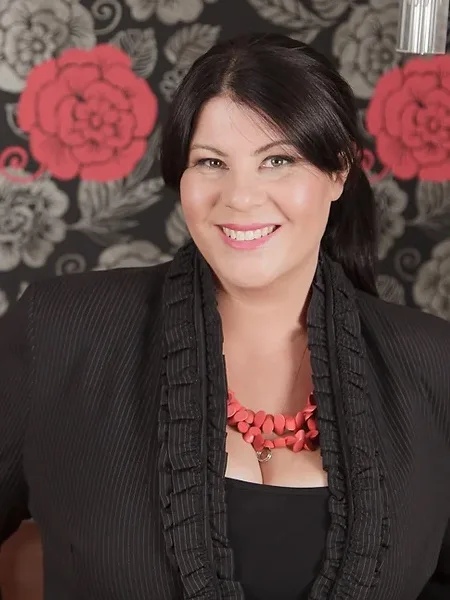Thanks to skyrocketing property prices in many parts of the country, the home ownership dream is starting to take a different shape for some buyers: rentvesting.
Instead of buying the property you want, rentvesters keep renting in an area you like living in. Then you buy a more affordable investment property somewhere else. You may never live there, but you own a property and you (and your tenants) are paying it off. For some Australians, it's your best shot at entering the market.
What is rentvesting?
Rentvesting is an investment strategy for would-be home owners who can't afford their dream home yet.
Say you want to buy a 2-bedroom home in Sydney’s inner west, but the sale prices in the area mean these homes are out of your reach. By following the rentvesting strategy you'd rent the kind of property you want to live in.
Then, you purchase a more affordable property in a suburb where property prices are cheaper. The property you buy is rented out, so while you rent your home, someone else's rent is helping cover the mortgage in the property you own. Over time you slowly pay down the mortgage, and you can eventually sell it and use the gains to buy a home you want to live in; or keep renting, and one day when your investment is paid off, enjoy the income.

"This is so sensible now when affordability is as tough as it is. Buying higher-performing investments and renting where you want to live makes sense if you have a real growth attitude and want to accumulate property, or, simply live somewhere that isn't affordable to buy in."
Watch: How rentvesting works
Pros and cons of rentvesting
Pros
- Get into the property market sooner. Rentvesting allows you to break into the property market with a smaller deposit, rather than saving a bigger deposit over several years.
- Build wealth. Rentvesting allows you to start building your investment property portfolio, which can be used to generate wealth for you and your family in the future.
- Save for your dream home. Owning an investment property allows you to save to buy your dream home.
- Flexibility. When you’re renting, you can more easily upgrade or downgrade your home if your circumstances change, like if you lose your job or get a promotion.
- Move around. If you’re not ready to put down permanent roots in a particular area, rentvesting gives you the freedom to move around and even travel the world if you wish.
- Tax benefits. You can claim interest payments on your investment property loan as a tax deduction.
- Choose where to invest. Where you want to live and the best place to buy an investment property often won’t be the same, so rentvesting allows you to be ruthless when it comes to choosing an investment.
Cons
- Buying an investment first. Buying an investment property before purchasing your own home can seem counter-intuitive to many people. Investment loans tend to have higher interest rates too.
- You lose first home buyer benefits. Australian governments have some support policies for first home buyers. This includes grants and stamp duty discounts. Investors don't get these benefits, and if your first home is an investment you won't qualify for first home buyer support later when you do buy your dream home.
- Dead money. The old adage that "rent money is dead money" may be a deterrent for some people considering this approach.
- You don’t own your home. As much as you may love your rental property, you don’t own it. This can be especially difficult if you form an emotional connection to a house but then the landlord wants you to move out.
- You can’t make it your own. Although a rental property might be vastly improved by a renovation project or simply a fresh coat of paint, it’s not yours to tinker with.

"Affordability is poor in many markets that have seen huge surges in growth in a short period. However, there are others where growth has been consistent and still trending higher. Look to identify suburbs where houses are still affordable relative to average household incomes."
What is the 6 year rule for rentvesting?
This relates to capital gains tax (CGT). When you own an investment property, you will be required to pay CGT when you eventually sell it.
CGT is calculated by taking the gain you make and adding it to your taxable income for the year. For instance, if you buy an investment home for $500,000 and sell it for $800,000, your gain is $300,000. This $300,000 will be added to your taxable income in the year you sell it and you'll pay tax on it at the appropriate rate.
Under current tax laws, if you own the property for more than 12 months, you'll get a 50% discount on tax (ie you only have to declare a gain to $150,000).
If you buy a home and live in it to establish it as your principal place of residence, you can then move out and rent another home and rent out your former home to produce income. When you do this, you can choose to treat it as your main residence with the ATO for up to 6 years after you stop living in it. This is sometimes called the '6-year rule'. Effectively, this gives you a 6-year period where you don't have to declare any capital growth.
Is it better to rentvest or buy?
On paper, renting often works out cheaper in the long run than buying. This is because home owners pay a lot of money in interest compared to rent. A quick example calculation of renting versus buying costs found that renters end up hundreds of thousands of dollars better off over the 30 years it would take to pay off a mortgage. Not to mention maintenance and other costs of owning property.
But this doesn't factor in the value of the asset. Yes, home owners might spend several hundred thousands dollars more over time. But they end up with an asset that is worth 7-figures.
Rentvestors get the best of both worlds in some respects. This is because you get to build equity in a property while avoiding the heavy cost of a mortgage on your dream home. Your maintenance costs on your investment, and your mortgage interest, are all tax-deductible too.
But rentvestors also end up renting and paying off a mortgage for someone else. You have to deal with all the problems renters face, such as unresponsive landlords and the possibility of having to move every few years. This can be frustrating for many people.
How to decide on the right approach for you?
Before you choose to buy a home or rentvest, make sure you can afford to rent and have a mortgage. Just because an investment property is cheaper than your dream home doesn’t necessarily mean that you can afford it, and just because renting feels like throwing away money doesn’t automatically mean you should mortgage yourself to the hilt.
Use a mortgage repayment calculator and break down your costs. Before deciding on either approach, you could also benefit greatly by seeking out expert advice from a mortgage broker.
Compare investment loan rates
Compare other products
We currently don't have that product, but here are others to consider:
How we picked theseSources
Ask a question
4 Responses
More guides on Finder
-
Why are infrastructure developments important for property investors?
Major infrastructure upgrades are frequently associated with strong demand in local markets, as property investors often seek locations with infrastructure developments in the pipeline.
-
How to get FIRB approval when purchasing property in Australia
The FIRB has recently introduced new laws surrounding foreign investment along with new application fees and compliance policies.
-
How to maximise your tax return as an investor
Australia has a unique love affair with property as an investment class. Not only is bricks and mortar seen as a safe investment, but Australia’s tax code means property investors can see enormous benefits at tax time. To make sure you’re getting the most out of your investment property, it’s important to understand the tax benefits available to investors.
-
How to invest in property using a line of credit or home equity loan
If you're looking to invest in property, a line of credit loan could be a great way to leverage the equity in your existing property for a deposit. A home equity loan is a loan in which you put your property up as security to borrow against the equity of your home.
-
Investment loans versus owner-occupier home loans
Learn about the key differences between investment and owner-occupier home loans and find the right type for your needs.
-
Buying an apartment checklist
A guide to buying a unit as a property investment, plus a helpful downloadable checklist.
-
What is the property clock and how does it work?
The property clock can help you determine the perfect time to buy and sell your investment, but how exactly does it work?
-
Buying an investment property in a trust
Buying property in a trust can offer tax benefits and excellent asset protection for investors. Here's how it works and some tips to bear in mind.
-
How foreigners can buy investment properties in Australia
The laws around buying Australian property using a foreign income have recently changed, so here’s what you need to do to invest in Australian property.
-
Housing bubbles explained
Is the market downturn evidence of a housing bubble about to pop? We look at property data and expert commentary on Australia's housing market.

If you rentvest to start, and later move to your investment property (1 year later), what are the CGT implications when you decide to sell?
Hi Sofia,
In cases where the rental property becomes the main residence, you may qualify for a CGT exemption if you live there for at least 12 months before selling.
I hope this helps.
Cheers,
Richard
If I buy a property, rent it out for a while whilst renting another property myself, then later move in to my property, what are the tax implications? Will I be subject to CGT for the investment period of the owned property? How is it calculated if I don’t sell until a number of years later? Anything else I should consider?
Hi Dsal,
Thank you for your question and for contacting finder.com.au – we are a financial comparison website and general information service, we are not mortgage specialists so can only offer general advice.
Basically, in your case, the CGT you’ll pay will be worked out by comparing the number of days you lived in the property to the number of days you rented the property. You’ll also be partially exempt from capital gains tax. You can find more details about CGT on our guide to selling properties and capital gains tax.
Cheers,
May